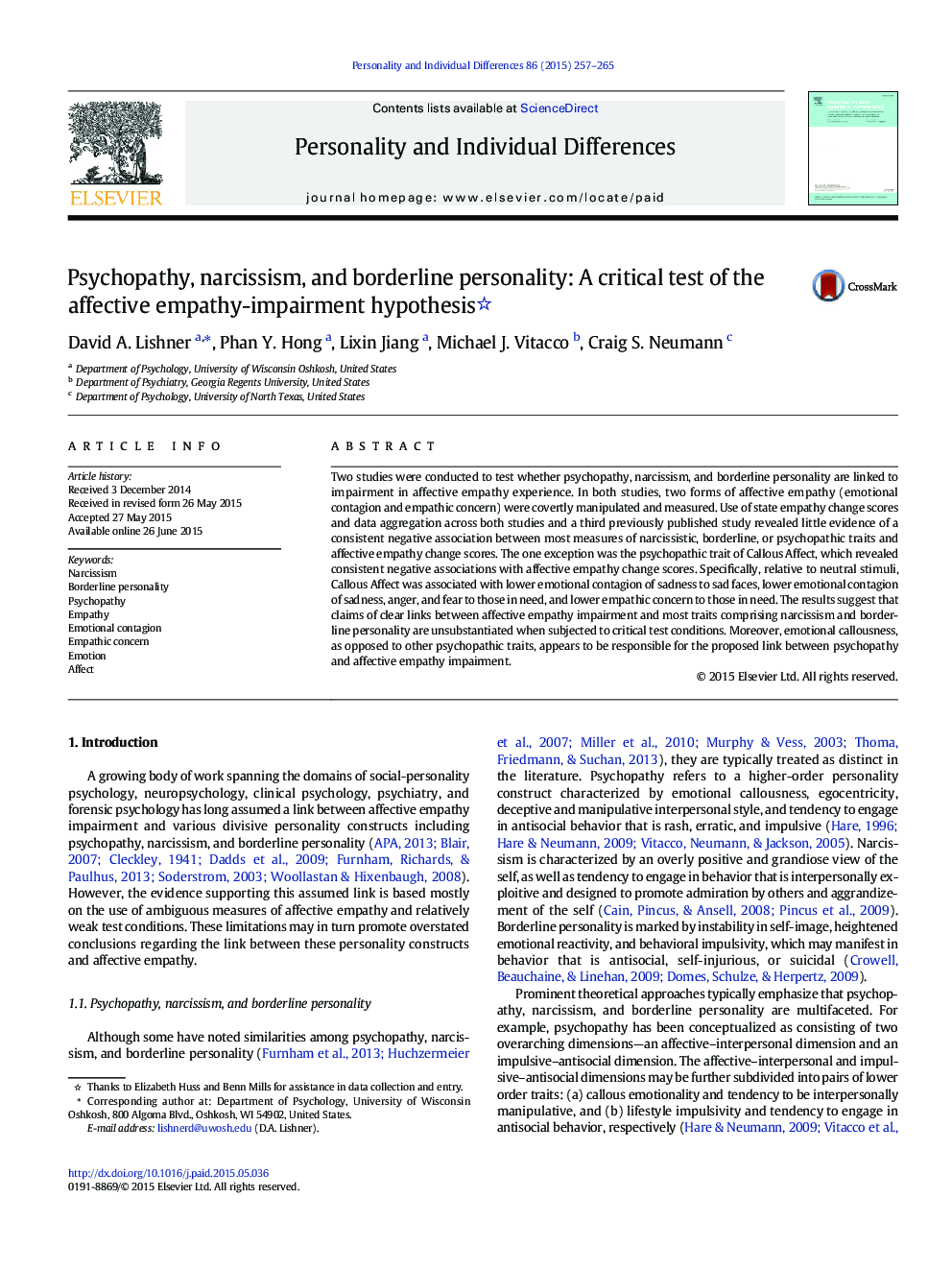| Article ID | Journal | Published Year | Pages | File Type |
|---|---|---|---|---|
| 889986 | Personality and Individual Differences | 2015 | 9 Pages |
•Examined links between psychopathy, narcissism, borderline personality and affective empathy•Personality traits were measured and used to predict change in state affective empathy.•Narcissistic and borderline personality traits poorly predicted affective empathy change.•Psychopathic emotional callousness consistently predicted lower change in affective empathy.
Two studies were conducted to test whether psychopathy, narcissism, and borderline personality are linked to impairment in affective empathy experience. In both studies, two forms of affective empathy (emotional contagion and empathic concern) were covertly manipulated and measured. Use of state empathy change scores and data aggregation across both studies and a third previously published study revealed little evidence of a consistent negative association between most measures of narcissistic, borderline, or psychopathic traits and affective empathy change scores. The one exception was the psychopathic trait of Callous Affect, which revealed consistent negative associations with affective empathy change scores. Specifically, relative to neutral stimuli, Callous Affect was associated with lower emotional contagion of sadness to sad faces, lower emotional contagion of sadness, anger, and fear to those in need, and lower empathic concern to those in need. The results suggest that claims of clear links between affective empathy impairment and most traits comprising narcissism and borderline personality are unsubstantiated when subjected to critical test conditions. Moreover, emotional callousness, as opposed to other psychopathic traits, appears to be responsible for the proposed link between psychopathy and affective empathy impairment.
